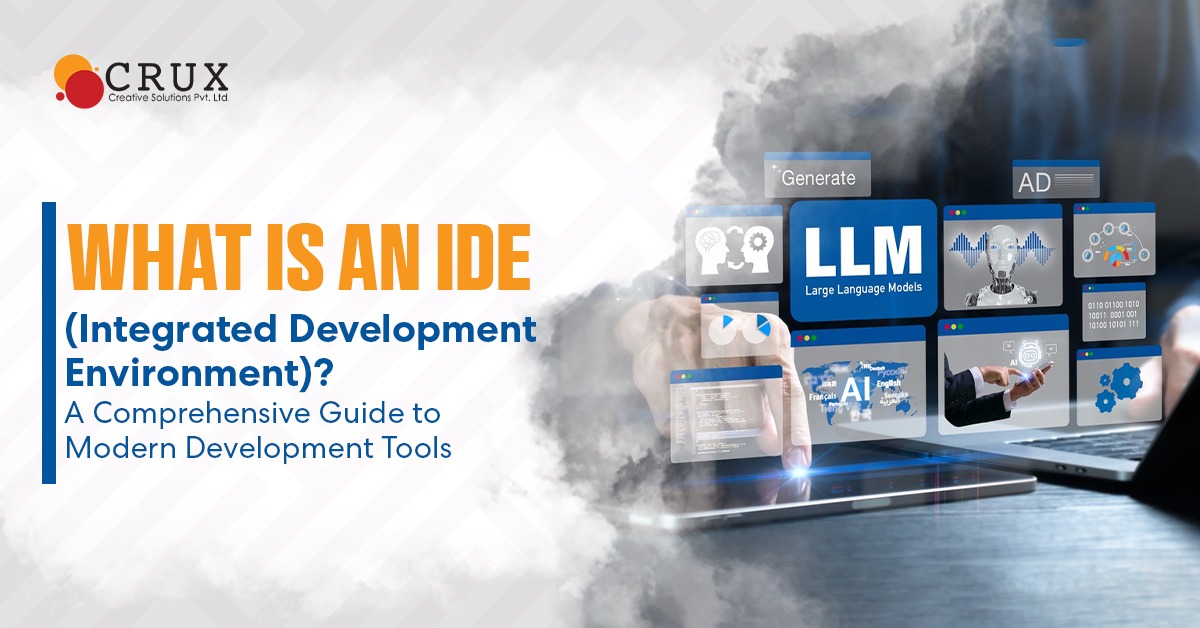
How Do Large Language Models (LLMs) Influence Google Search Rankings?
Large Language Models (LLMs) like GPT-4, Google’s Gemini, and Claude are changing the way search engines understand and rank content. These AI-driven models process vast amounts of data, helping search engines improve search results, understand user queries better, and determine the relevance of content. Hence, gone are the days, when an SEO company in Gurgaon will try to rank your content based on specific keywords.
But how exactly do LLMs influence Google search rankings? This blog will explain their impact in simple terms, with real-world examples.
What are Large Language Models (LLMs)?
LLMs are advanced artificial intelligence models trained on vast amounts of text data. They understand human language, generate text, and provide meaningful responses. Google’s search algorithm now incorporates AI models to improve search results, making search engines smarter and more user-friendly.
For example, when you type "best places to visit in Japan," Google doesn’t just look for webpages with those exact words. Instead, LLMs analyze your intent and find relevant pages about travel destinations in Japan, even if they don’t contain the exact phrase.
How LLMs Affect Google Search Rankings?
1. Better Understanding of Search Intent
Google’s algorithm is no longer just matching keywords; it’s understanding intent. LLMs help Google grasp what users mean when they search.
Example:
- If someone searches "Apple not turning on," Google understands whether they mean an Apple iPhone, MacBook, or the fruit, based on context.
- Previously, search engines relied on keyword matching, often showing results that included "apple" but were irrelevant to the user’s needs.
By using AI, Google delivers more precise results, favoring content that aligns with user intent rather than just containing specific keywords.
2. Content Quality and Relevance
LLMs analyze and evaluate content quality more efficiently than ever. Google rewards well-written, informative, and engaging content while filtering out low-quality, spammy pages.
Example:
Imagine two websites publish articles about "how to lose weight."
- Site A: Uses AI to write a well-structured, informative article with sources and expert opinions.
- Site B: Repeats the keyword "lose weight fast" multiple times but lacks depth and useful insights.
LLMs help Google identify that Site A provides value to readers, boosting its ranking, while Site B’s keyword-stuffed article is ranked lower.
3. Detecting AI-Generated and Low-Quality Content
Google’s AI models detect AI-generated content that lacks originality or engagement. Simply using AI to mass-produce articles won’t guarantee high rankings unless the content adds value.
Example:
- A website generates 100 AI-written blog posts filled with generic information.
- Another site creates 10 AI-assisted articles but adds original insights, data, and expert opinions.
Google ranks the second website higher because it prioritizes human-like engagement and expertise.
4. Enhanced Natural Language Processing (NLP)
Google’s AI models, including BERT and MUM, understand context, synonyms, and relationships between words. This ensures better search results.
Example:
A user searches, "How to make a cake without eggs?"
- Old algorithms may have focused on "cake," showing results unrelated to egg-free recipes.
- LLMs understand the intent and prioritize egg-free cake recipes, even if they use terms like "vegan cake" or "substitutes for eggs."
This benefits websites that write content in a natural, conversational tone rather than relying on keyword stuffing.
5. Personalization and Context Awareness
Google’s AI adapts to users’ preferences over time. LLMs analyze previous searches and browsing behaviour to tailor results.
Example:
- If a user frequently searches for vegetarian recipes, Google will prioritize plant-based content over meat-based recipes in future searches.
- If another user looks for budget travel tips, they may see rankings tailored to affordable destinations and travel hacks.
For businesses, this means optimizing content for niche audiences and engaging users through personalized experiences.
6. Featured Snippets and Voice Search Optimization
LLMs help Google pull out the most relevant information for featured snippets, which appear at the top of search results.
Example:
A user searches, "What is the tallest building in the world?"
- Google’s AI scans web pages and finds a concise, well-structured answer to display at the top.
Similarly, with voice search, users ask questions in natural language, and Google relies on AI to find direct answers. Optimizing featured snippets by using clear, structured content increases the chances of ranking at the top.
7. Evolving Search Algorithms and Continuous Learning
Google constantly updates its search algorithm with AI improvements. Businesses must keep up with changes by focusing on quality, expertise, and user engagement.
Example:
- In 2011, keyword stuffing helped rank pages higher.
- In 2024, AI prioritizes engaging, authoritative content written for real people.
Brands that adapt to AI-driven search trends maintain their rankings, while outdated SEO tactics become ineffective.
How to Optimize Content for LLMs and Google Rankings?
Focus on User Intent
Create content that answers users’ questions in depth. Research search intent and structure content around solving problems.
Write High-Quality, Engaging Content
Ensure that your content provides value, includes credible sources, and is well-organized. AI-generated content should always be reviewed and refined by human writers.
Use Conversational and Natural Language
Avoid overloading content with repetitive keywords. Instead, write in a way that sounds natural and easy to understand.
Structure Content for Featured Snippets
Use headings, bullet points, and concise answers to increase chances of appearing in featured snippets and voice search results.
Stay Updated with Google’s AI Developments
Follow industry trends and adjust your SEO strategies with the help of a digital marketing agency in Gurgaon to align with how AI models interpret and rank content.
Conclusion
Large Language Models (LLMs) are reshaping Google search rankings by improving content understanding, intent detection, and personalization. Businesses that focus on high-quality, user-friendly content will continue to succeed in search rankings.
To stay ahead, optimize for AI-driven search by creating valuable content, writing naturally, and keeping up with evolving search trends. By doing so, you’ll ensure better visibility and higher rankings in Google’s ever-changing search landscape.














